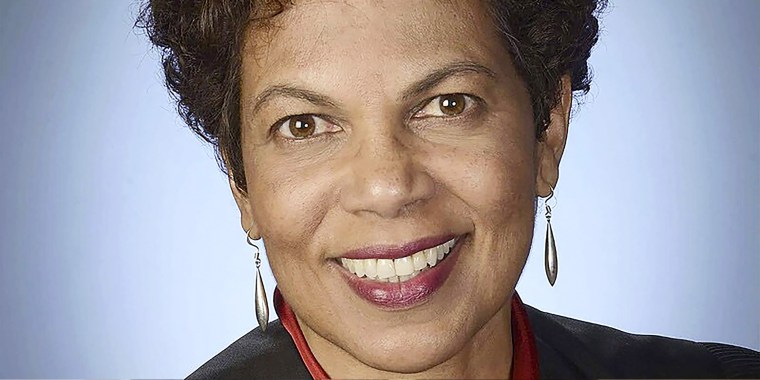UPDATE (Aug. 9, 2023, 8:01 a.m. ET): Judge Tanya Chutkan on Tuesday set a protective order hearing in Donald Trump's 2020 election interference case for Friday.
After a heated back-and-forth in court papers between special counsel Jack Smith and Donald Trump over Smith’s proposed protective order, U.S. District Judge Tanya Chutkan decided Monday night to hold a hearing this week to sort it out.
So, what are the two sides arguing about exactly?
At a broad level, Trump cites free speech and the government cites safety and the sanctity of court proceedings while noting that defendants don’t have the right to publicize discovery evidence ahead of trial. Prosecutors argued that Trump wants to "try this case in the media rather than in the courtroom."
But ahead of this week’s hearing — the date hasn't been set yet — let’s look at the specific language they’re fighting over.
Remember, the reason we know these details is that the Justice Department submitted its proposed order and then Chutkan told the defense to suggest edits where it disagreed with the government.

To get a sense of the dispute, here’s an example of where the parties still disagree: In the DOJ’s proposed order, it says materials provided to the defense “may be used by the defendant and defense counsel (defined as counsel of record in this case) solely in connection with the defense of this case, and for no other purpose, and in connection with no other proceeding, without further order of this Court.”
The defense objects to that narrower definition of Trump’s legal team — limited to “counsel of record in this case” — because the defense wants it to also include “other attorneys assisting counsel of record.” In their response signed by attorney and new television personality John Lauro, Trump’s lawyers say they want to be able to bring on volunteers to help them prepare the case.
And what’s wrong with that?
Well, according to the government’s latest filing Monday, it’s that Trump’s proposed language “is boundless” because it lacks a “clearly defined relationship of employment or privilege.” Smith’s team notes that several co-conspirators mentioned in the 2020 election interference indictment are attorneys, so they could fit under such an expansive definition.
The longer it takes to get discovery to the defense, the longer the defense can claim it needs more time to review discovery.
Another example highlighting the parties’ disagreement is over Trump taking notes that include people’s personal identifying information. The government’s proposed order says defense counsel needs to inspect Trump’s notes to make sure he hasn’t copied down such sensitive information. But Trump’s counterproposal deletes that requirement.
Again, what’s wrong with that?
Well, again, according to the government, it ties into the alleged conduct in the indictment itself. That is, Smith’s team argues this condition is “particularly important here because of the defendant and his co-conspirators’ practice, as described in the indictment, of publicly targeting individuals.”
So, what’s Chutkan going to do with all of this?
We should have a better idea at the hearing, which she said needs to happen on or before Friday. The judge gave the parties until 3 p.m. ET on Tuesday to give her two potential times. She specified that Trump doesn’t need to attend the hearing.
In the end, expect Chutkan to grant the government’s protective order in some fashion not long after the hearing, whenever it happens. The question will likely be to what extent she incorporates any of Trump’s proposed edits. Whatever the terms of her order, the natural follow-up question it raises will be whether Trump abides by it and what she’ll do if he doesn’t.
But it’s important to take a step back and remember the timing aspect animating the litigation. That is, the special counsel is eager to get this protective order in place not only to — as the order’s name suggests — protect sensitive information, but to get the case moving toward trial. The longer it takes to get discovery to the defense, the longer the defense can claim it needs more time to review discovery.
On this score, we’re due for a stark reminder of trial timing this week, as the special counsel has a brief due by Thursday proposing a trial date. Whether Trump can abide by a protective order — whatever its terms — will be just one of many elements operating in the shadows of that date once Chutkan sets it.
